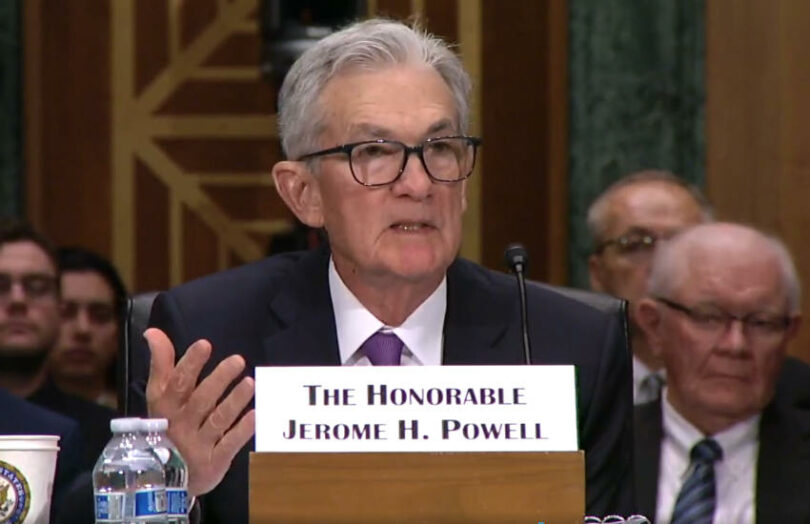During a Senate hearing yesterday, Federal Reserve Chair Jerome Powell was quizzed a couple of times about a potential digital dollar or central bank digital currency (CBDC). He reiterated the Federal Reserve’s need for Congressional approval to launch a CBDC, but this time didn’t use the ‘retail CBDC’ qualifier.
“People don’t need to worry about a central bank digital currency (CBDC). Nothing like that is remotely close to happening any time soon,” Powell said.
“We’re nowhere near recommending, let alone adopting, a central bank digital currency in any form.”
Most concerns relate to a retail CBDC. However, the reference to ‘any form’ could relate to a wholesale CBDC for interbank payments. In September last year, the Federal Reserve published a paper that explored the nuances of what a wholesale CBDC involves. It concluded that to be distinct from the central bank money currently used by banks, a wholesale CBDC would have to have a different legal structure and be recorded as a separate item on the central bank balance sheet. There are arguments that a tokenized form of reserves requires neither of these.
Focusing on a retail CBDC, the Fed Chair explained yesterday, “The thought was that the government could create a digital form of money that people could then transfer among themselves. Of course that raises the concern that if that were a government account, the government would see all your transactions.”
He continued, “That’s something that we would not stand for, do or propose here in the United States. That is how it works in China, for example.”
CBDC Congressional approval
Senator Lummis asked Chair Powell if he still agreed that introducing a CBDC requires Congressional authorization. Powell acknowledged with a simple, “Yes, I do.” That’s in contrast to his acknowledgment this time last year in which he stated, “That would absolutely be the case as it relates to a retail CBDC.”
There are alternatives to a wholesale CBDC when it comes to interbank and securities settlement. For example, in the UK, Fnality has gone live with tokenized money backed by an omnibus central bank account. DTCC, the major U.S. securities financial market infrastructure, invested in Fnality last year. And Fnality has confirmed it is discussing a potential application with the Federal Reserve.






